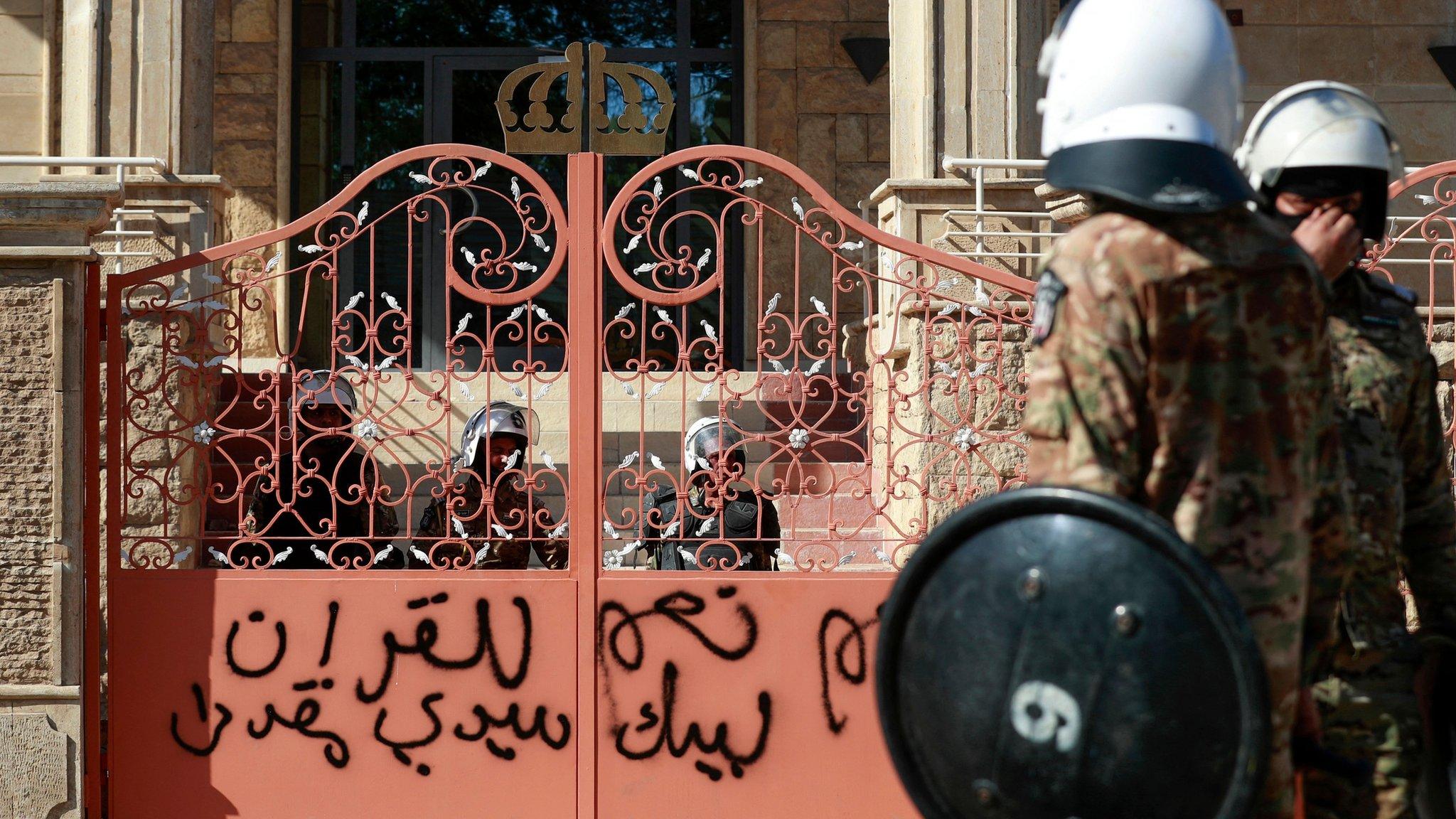Denmark plans jail term for burning Quran in public
- Published

Protests against the Quran burnings in Denmark and neighbouring Sweden have taken place in many Muslim countries
The Danish government has proposed a ban on setting the Quran alight in public after a series of burnings led to uproar in Muslim countries.
Justice Minister Peter Hummelgaard said such burnings harmed Denmark and risked the safety of Danes.
The planned law will make improper treatment of the Quran or Bible a criminal offence punishable by a fine and jail sentence of up to two years.
The centre-right government said it wanted to send a signal to the world.
Foreign Minister Lars Lokke Rasmussen said Denmark had witnessed 170 demonstrations in recent weeks, including the burning of copies of the Quran in front of foreign embassies.
Denmark's PET intelligence service has warned that the latest incidents have intensified the terrorist threat.
Neighbouring Sweden has also seen a series of Quran burnings and its security service has warned of a worsening security situation. In July, the Swedish embassy in Iraq was set alight by protesters.
But both Denmark and Sweden have hesitated to respond to the burnings because of their liberal laws on freedom of expression. Sweden scrapped its blasphemy laws in the 1970s.
Copenhagen decided to move after further Quran burnings at the end of July in Denmark and Sweden. The Organisation of Islamic Cooperation (OIC) called on its members to take appropriate action against countries where the Quran was being desecrated.
The justice minister was adamant the proposed change in the law was not targeting verbal or written expressions or satirical drawings. But he said burning religious texts served no other purpose than creating division and hatred.
"It is a cornerstone of our democracy that you have the right to express yourself," said Deputy Prime Minister Jakob Ellemann-Jensen. "You also have to behave properly."
Denmark could not stand idly by when such actions had negative consequences for its security, he added.
Sweden's prime minister, Ulf Kristersson, said Stockholm would not take the same step as its neighbour, because that would probably require amending the constitution.
Justice Minister Gunnar Strommer told reporters that a decision to review its public order law was the right move. The government wants to change the law to ban gatherings, external that threaten Sweden's public security.
Ministers in Denmark intend to propose changes to the law on 1 September and have them passed by parliament before the end of the year.
The ban is expected to be added to a section of the criminal code that bans public insult of a foreign state, its flag or other symbol.
- Published29 June 2023

- Published27 July 2023
